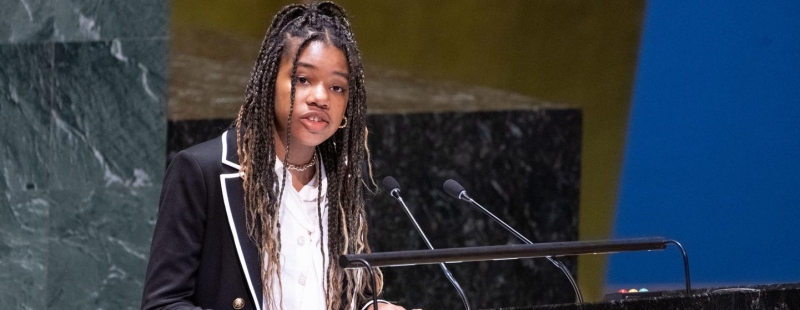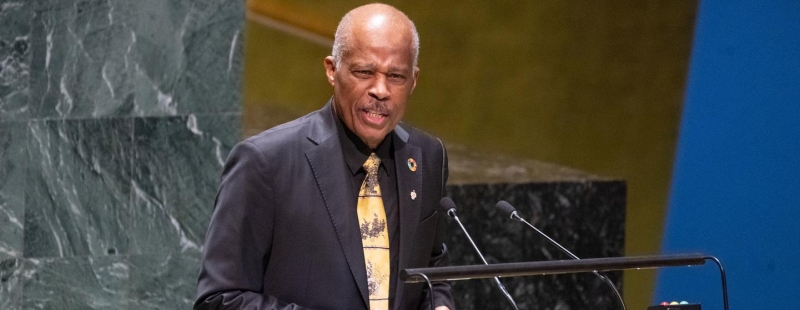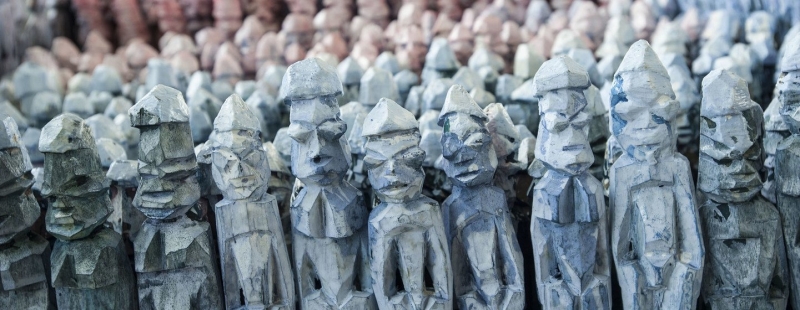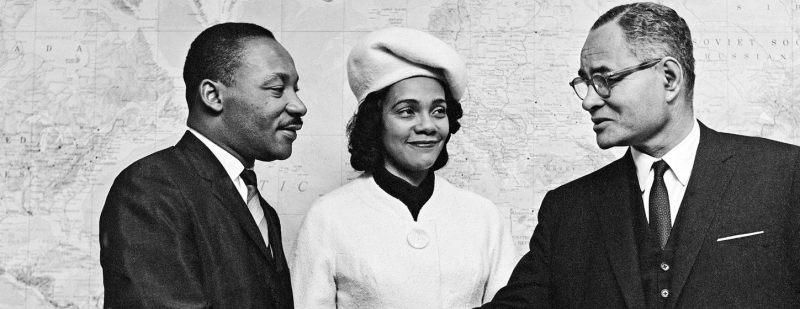
The Black Lives Matter (BLM) social movement is dedicated to the fight against racism and police brutality. Remember slavery to eradicate its legacy Human Rights
Racism, discrimination, economic hardship and health problems are just some of the centuries-old legacies of the transatlantic slave trade. This legacy is the theme of events and exhibitions at UN Headquarters as part of the #RememberSlavery program.
“We are talking about the greatest crime against humanity ever committed,” historian Sir Hilary Beckles, who heads the Caribbean Community Reparations Commission, said of the transatlantic trade that enslaved more than 10 million Africans over four centuries.
“You could say that this institution was abolished 200 years ago and call it a day, but let me tell you this,” he said, “in the last 500 or so years, not there was no institution that changed the world as profoundly as the transatlantic slave trade and slavery.”
Remembering Slavery in the 21st Century
Sir Beckles spoke at a special General Assembly event to mark the International Day of Remembrance for the Victims of Slavery and the Transatlantic Slave Trade, observed annually on 25 March. 15-year-old activist Yolanda Renee King from the United States also spoke there.

Activist Yolanda Renee King is the granddaughter of Dr. Martin Luther King Jr. and Coretta Scott King.
“Today I stand before you as a proud descendant of enslaved people who resisted slavery and racism,” King said.
“Like my grandparents, Dr. Martin Luther King Jr. and Coretta Scott King,” she added, “my parents, Martin Luther King III and Arndrea Waters King, also dedicated their lives to ending racism and all forms of intolerance and discrimination. Like them, I am committed to fighting racial injustice and continuing the legacy of my grandparents.”
UN News met with Yolanda King and Sir Beckles to ask them about International Day of Remembrance.
UN News Service: The transatlantic trade in Africans ended centuries ago. Why is it still important for the world to remember this?
Sir Hilary Beckles:When we say that centuries have passed – yes, maybe a little less than 200 years, but slavery and the slave trade were the greatest commercial enterprises in the world at that time and influenced the structure of the world economy, politics, race and cultural relations, as well as how civilizations interacted with each other. The impact was so profound that it lasts for generations.
Yolanda Renee King: Very important, so that there is some recognition. This is a day for reflection. I think we need to acknowledge our history, our mistakes and pain. We cannot reach our world’s full potential because of the transatlantic slave trade.

Historian and head of the Caribbean Community Reparations Commission Sir Hilary Beckles.
UN News Service: What legacy of the transatlantic slave trade is still with us today?
King: There are still traces of that racism, that discrimination. We must acknowledge their origins in order to solve the problems. Obviously there is a lot of discrimination and racism everywhere. Even though we have made progress every century, I think problems still exist.
In order to solve a problem, we must first acknowledge it.
Especially now, more than ever, we are seeing a big pullback. We are seeing an increase in racism, and not only racism, but discrimination against all vulnerable groups in general.
Sir Beckles: The consequences were very significant. We see evidence of this legacy everywhere, not only in places where the slave trade took place, such as throughout the Americas, but also in Africa and, to some extent, in Asia.
Read also:
Independent UN experts: American police are “riddled” systemic racism
We see this not only in the obvious issues of race relations and the development of racism as a philosophy of social organization, where most societies affected by the slave trade , today are structured in such a way that people of African descent are considered the most marginalized, and the descendants of enslaved people continue to suffer from racism.
If you look at the countries with the highest prevalence of chronic disease, black people have the highest proportion of adults with diabetes in the world.
The island where I’m from, Barbados, considered the birthplace of slavery, its slave code in 1616 became the code for all of America, within which Africans were defined as chattel. Barbados currently has the highest rate of diabetes and the highest amputation rate in the world.

UNESCO exhibition in Paris dedicated to the history of the slave trade.
It can’t be a coincidence that a small island that was the first island with a majority African population and enslaved inhabitants now has the highest diabetic amputation rate in the world.
UN News: How to fight this legacy?
King: If you want discrimination, prejudice, etc. in the world, and you want difficulties in the future, then move on with your life and just leave things as they are today.
But if you want change, if you really want to do something, I think the best way is to hold our leaders accountable and bring these issues to their attention. They will determine not only your future, but also the future of your child, the future of your family and everyone who comes after you.
Sir Beckles : We are still working to understand the fundamental problems of colonization, mass illiteracy, extreme malnutrition and chronic disease, and addressing these issues requires enormous investment. So when we talk about justice, we are basically saying to the colonizers and enslavers, “This is your legacy, and reparative justice says that you must return to the scene of the crime and contribute to the operation to clean it up.”

Gorée Island in Senegal was the largest center of the transatlantic slave trade.
Thirty or forty years ago, reparative justice was a concept that had very little support. In redefining the concept of reparations, we stated that it is about redressing the harm done to peoples, communities and countries. These problems must be solved if these countries are to have a chance to develop.
We found that African governments, armed with historical knowledge, could say, “We want to have the conversation about reparations, we want to talk about it.” This was one of the main achievements. When the African Union met late last year and declared that 2025 would be the year of African reparations, it was a huge historic achievement.
UN News Service: Ms. King, your grandfather’s famous “I Have a Dream” speech in Washington in 1963 continues to inspire generations to fight for their rights. He dreamed of the day when people would be judged by their character and not by the color of their skin. Did his dream come true in 2024, and have you ever felt judged by the color of your skin?
King: I think we haven’t achieved that dream yet. I believe that there is some progress. But we should not be at the stage that we are experiencing now, we should have moved further along this path. And if he and my grandmother were still alive, I think we would have come a lot further as a society.
As a black man, I believe that Unfortunately, we have all experienced some form of discrimination and judgment. Unfortunately, yes, there have been times when I have been judged based on my race. I think we need to find a way to move forward, and we need to start strategizing about it.

Dr. King and Coretta Scott King with Deputy Secretary General Ralph Bunche.
I think that instead of talking about a dream, glorifying it, celebrating it, and tweeting it on Martin Luther King Jr. Day, we actually need to start taking action to move forward , to improve and achieve the peace that he described in his speech.
Remember slavery
From 21 through March 27, the United Nations held a number of special events to mark the Week of Solidarity with Peoples Against Racism and Racial Discrimination, as well as the final months of the International Decade for People of African Descent.
Two exhibitions have opened to highlight the courage of those who fought slavery, from South Africa to Georgia in the United States. The General Assembly celebrated the International Day for the Elimination of Racial Discrimination, March 21, with performances by musicians and renowned scientists.
Read also:
“Racism is evil”: the UN celebrates the International Day against Racial Discrimination
To To learn more and access key documents, conventions and other information, see the UN Outreach Program on the Transatlantic Slave Trade and Slavery.
